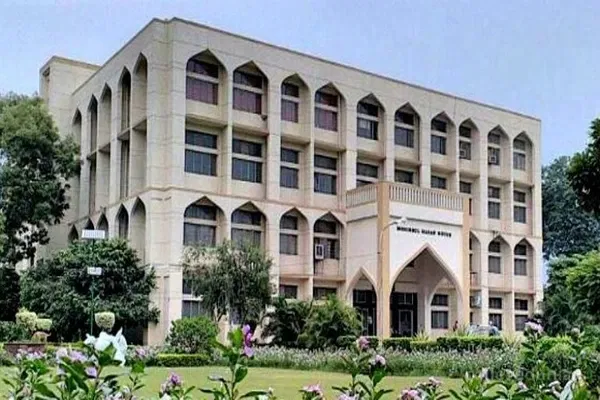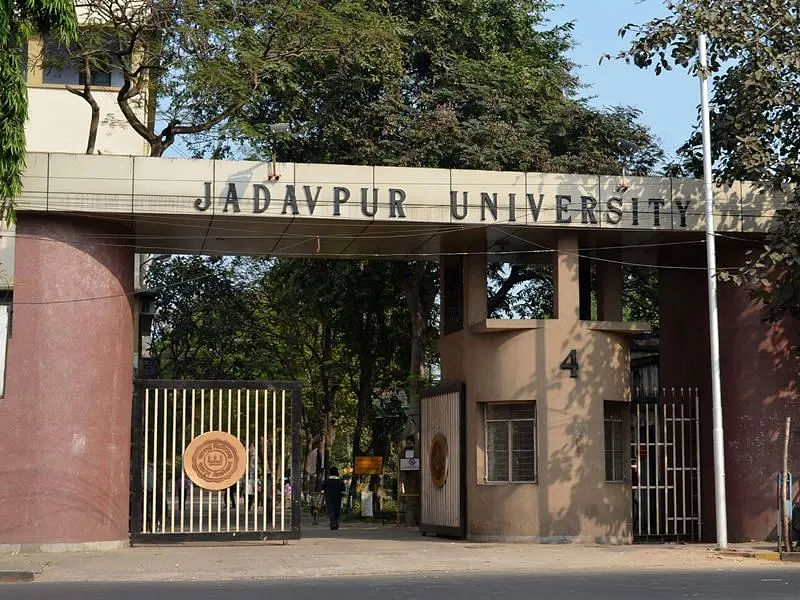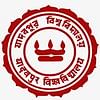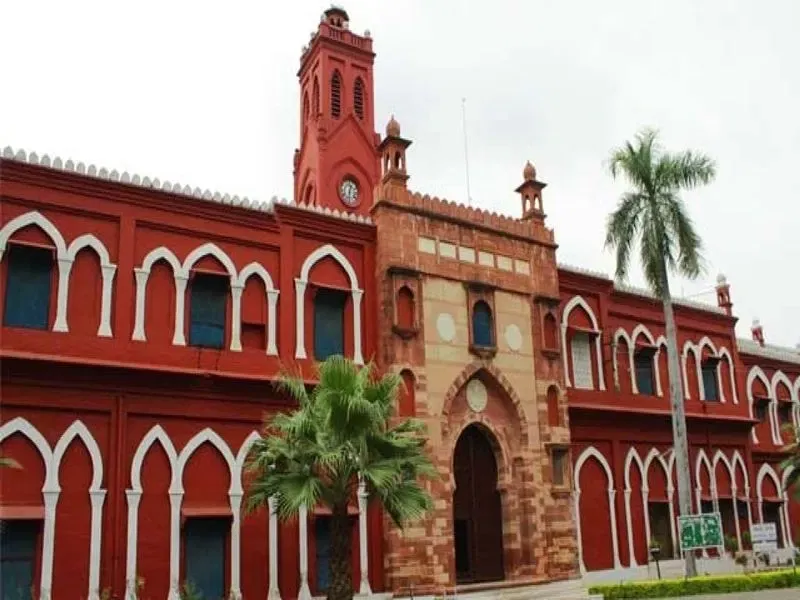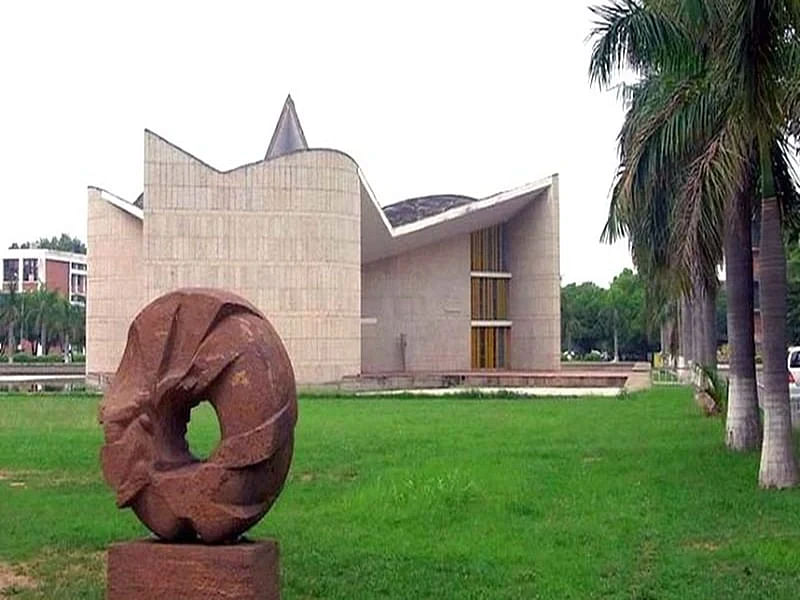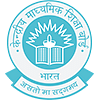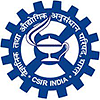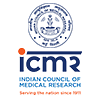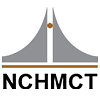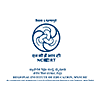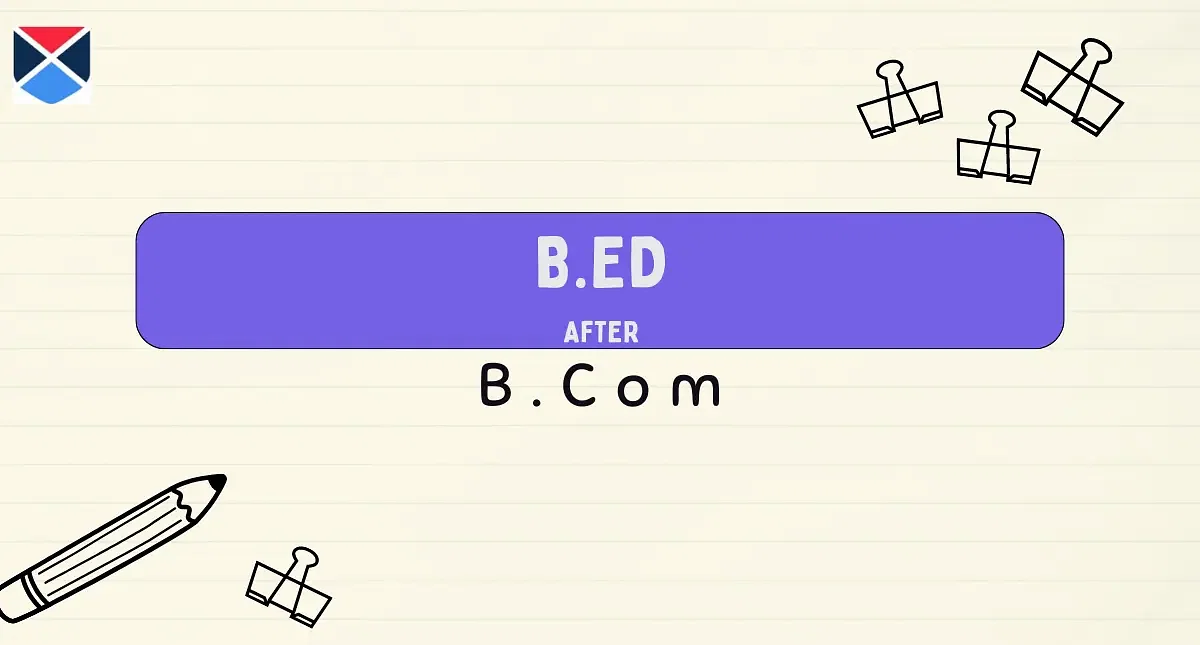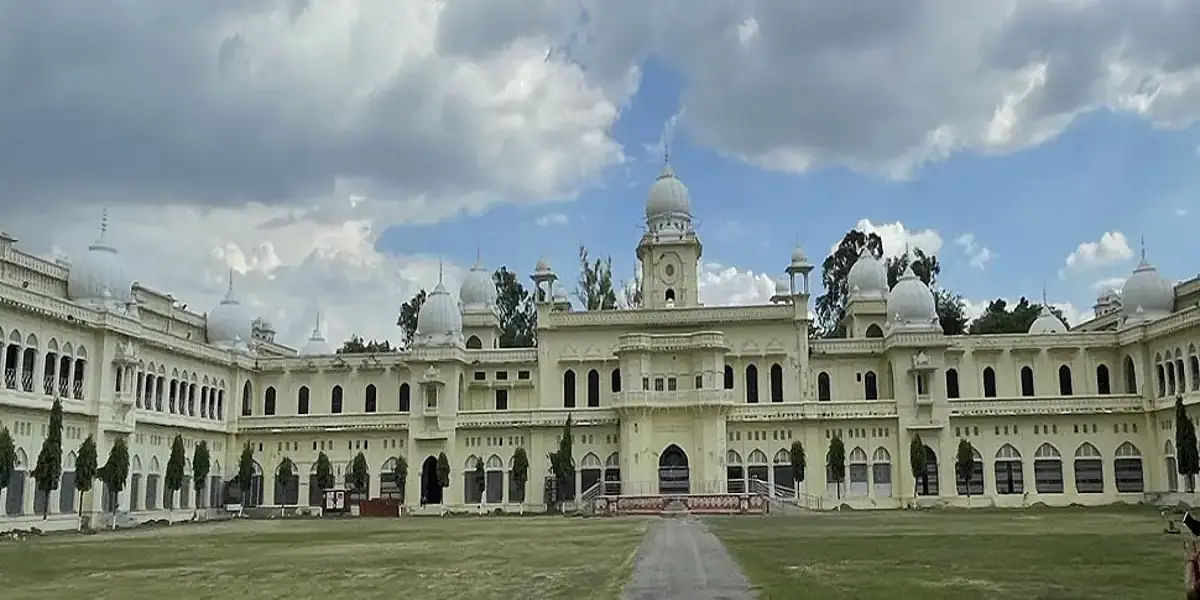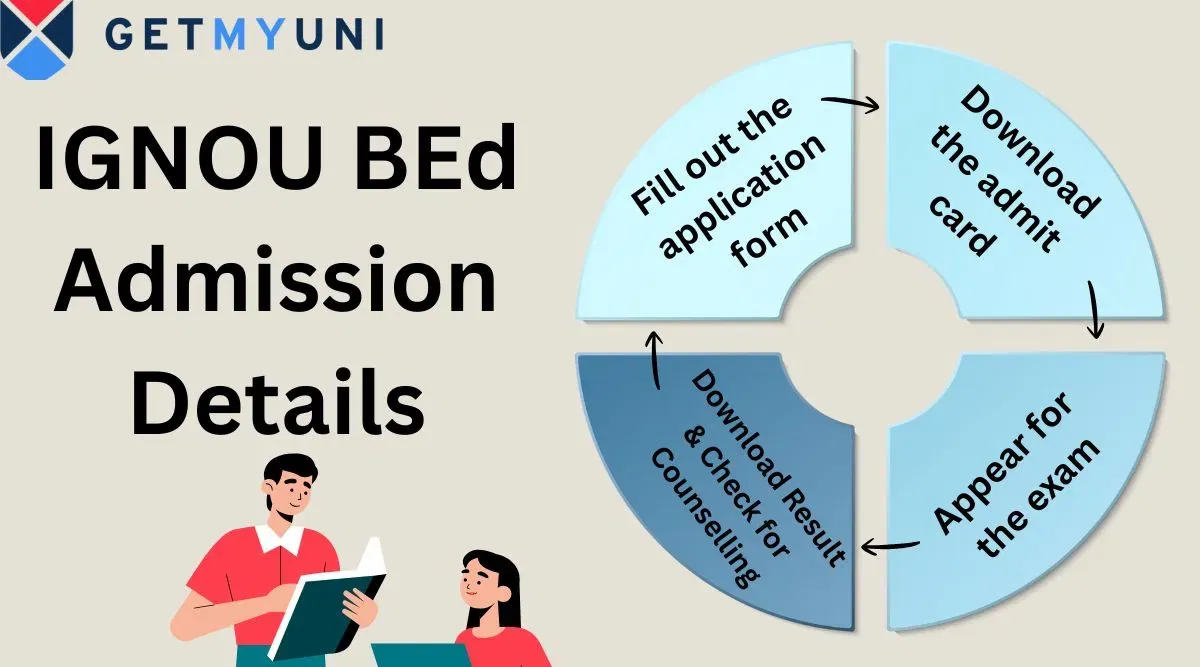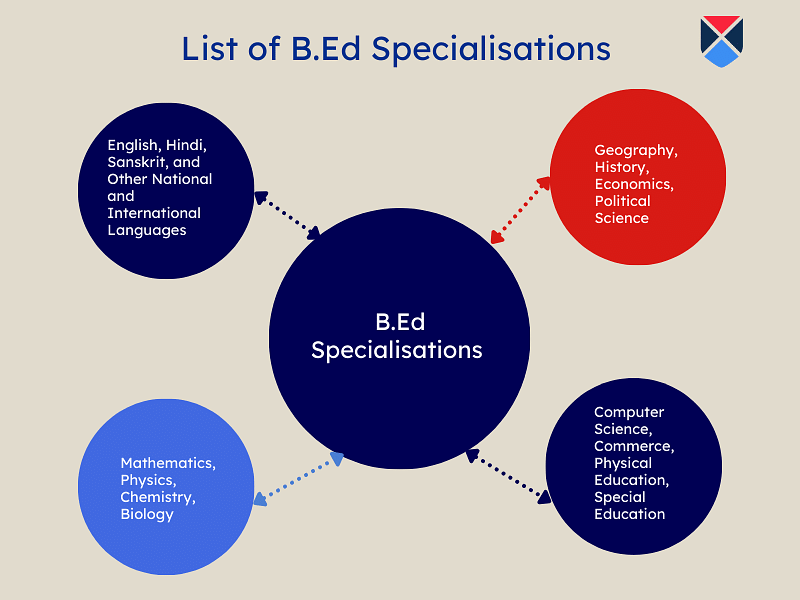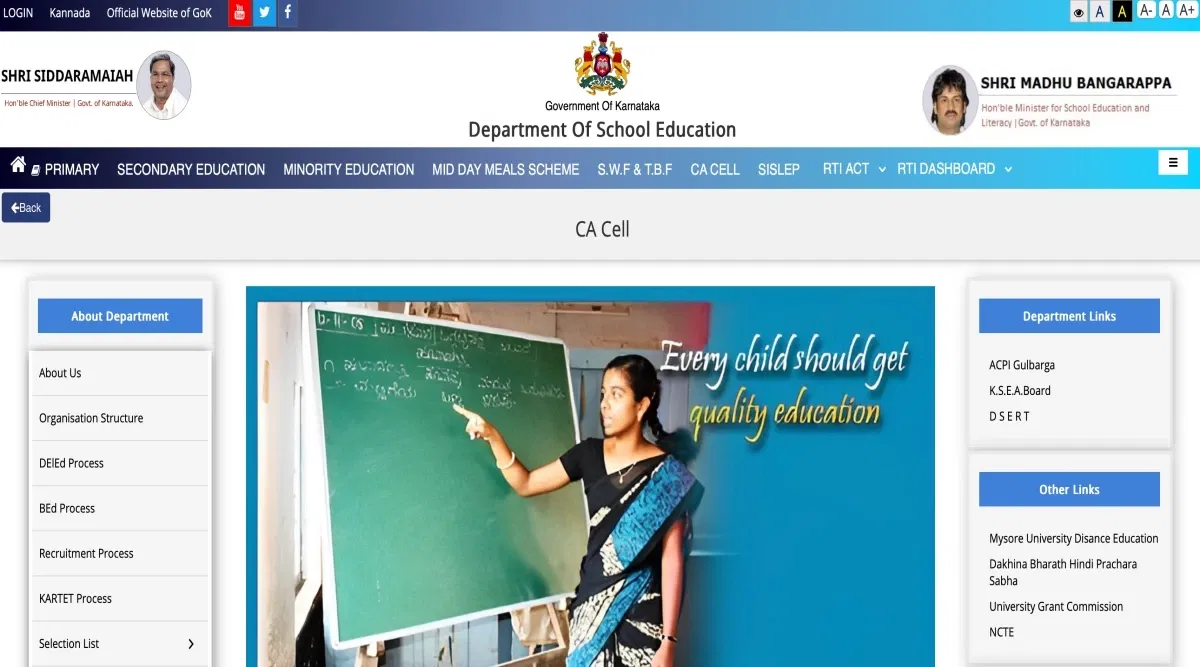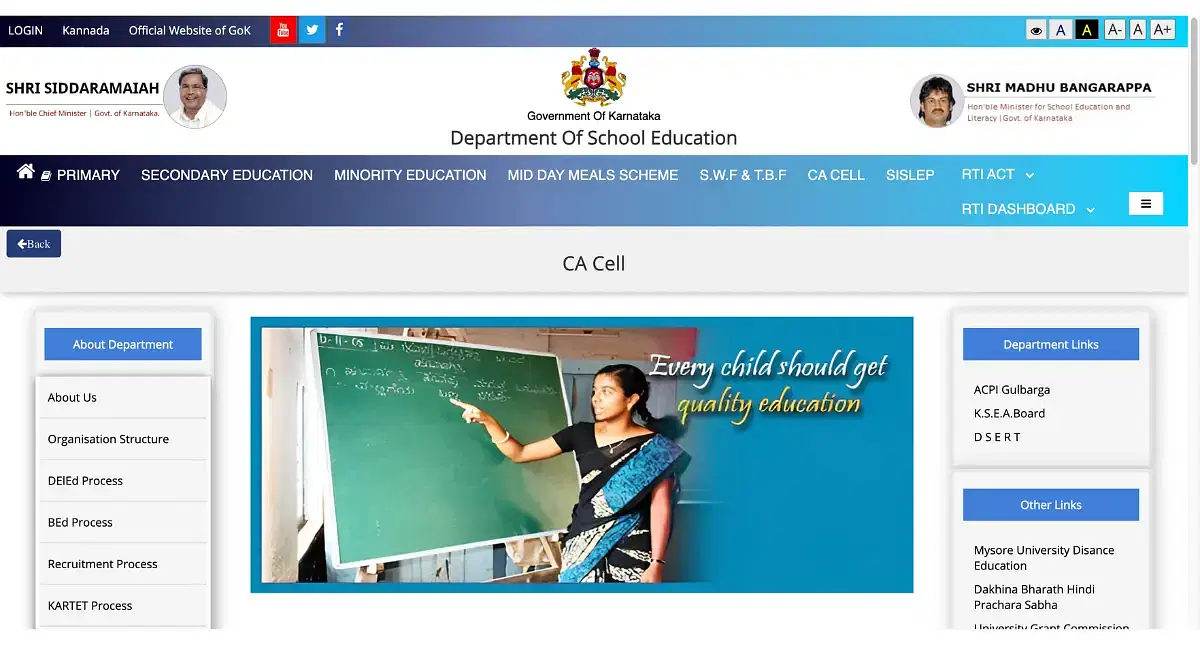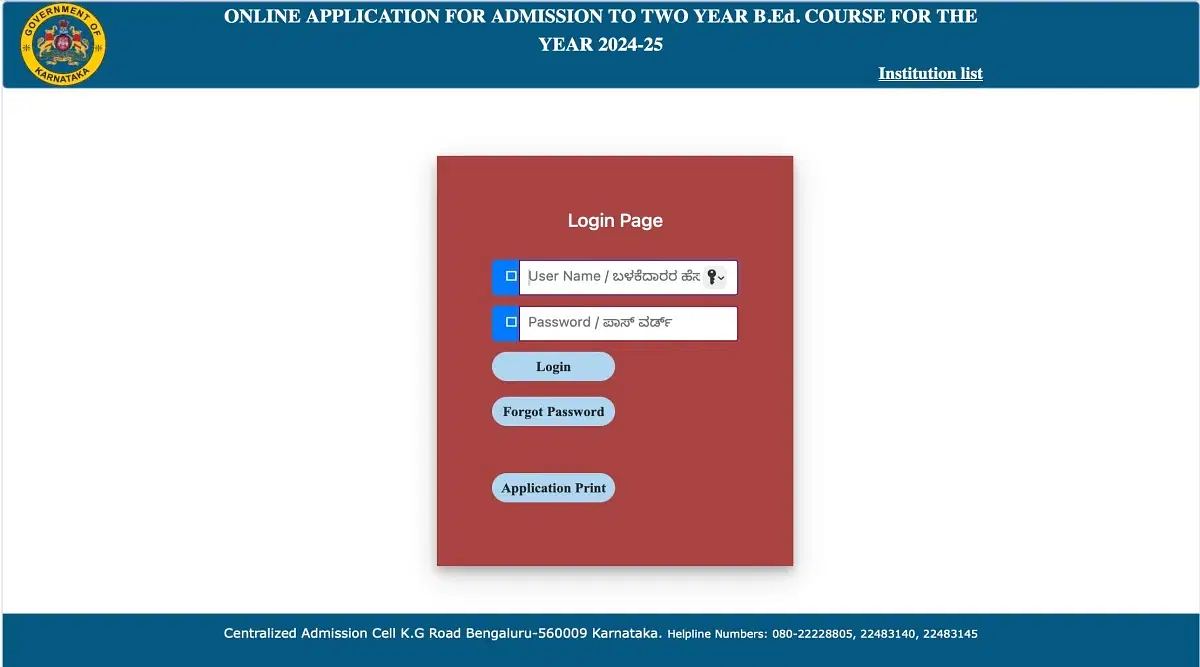BEd Syllabus & Subjects 2025
Overview of BEd Syllabus and Subjects 2025
The full form of B.Ed is Bachelor of Education which is of 2 years duration. BEd Syllabus and Subjects include a two-year professional course designed to prepare aspiring teachers for various educational settings. The BEd Syllabus is structured to provide a comprehensive understanding of educational theories, pedagogical skills, and practical teaching experience. Candidates who wish to pursue this course need to complete 1the 2th from a recognised board.
The B.Ed syllabus and subjects are divided into core and elective subjects. The core syllabus for BEd course consists of 3 main components: Perspectives in Education, Curriculum and Pedagogic Studies, and Engagement with the Field. Meanwhile, the elective subjects include Pedagogy of Social Sciences, Biological Science, Physical Science, etc. The average course fee for the BEd course is INR 10000 to INR 1 lakh, depending on the college.
While the Bachelor of Education (B.Ed) syllabus might vary depending on the curriculum prescribed, the basic course structure remains the same. Check this page for more details on BEd syllabus and subjects, and various specialisations.
BEd Syllabus Semester-wise Breakdown
BEd syllabus is divided into two years and 4 semesters. The semester-wise breakdown for BEd syllabus and subjects has been given below:
BEd First Year Syllabus Semester-Wise 2025
The subjects included in B.Ed syllabus for the first semester are listed in the table below:
|
BEd Syllabus - Semester 1 |
|
|
Childhood and Growing Up |
Contemporary India and Education |
|
Language across the Curriculum |
Pedagogy of a School Subject 1- Part 1 |
|
Pedagogy of a School Subject 2- Part 2 |
Information and Communication Technology (ICT) & Its Applications |
|
School-Based Exposure |
Practicum/ Assignments/ Tasks |
|
BEd Syllabus - Semester 2 |
|
|
Learning and Teaching |
Pedagogy of School Subject 1 – Part II |
|
Pedagogy of School Subject 2 – Part II |
Knowledge and Curriculum |
|
Assessment For Learning |
School Attachment & Community Living Lamp |
|
Field Work and Internship |
- |
BEd Second Year Syllabus Semester-Wise 2025
The subjects included in BEd syllabus for second semester are listed in the table below:
|
BEd Syllabus - Semester 3 |
|
|
Pre internship |
Internship |
|
Engagement with the Field: Tasks and Assignments related to the internship |
- |
|
BEd Syllabus - Semester 4 |
|
|
Gender, School & Society |
Reading and Reflecting on Texts |
|
Arts in Education |
Understanding The Self |
|
Creating an Inclusive School |
Health, Yoga, and Physical Education |
|
Field Work and Internship |
- |
BEd Core Subjects vs Electives
Bachelor of Education (B.Ed) syllabus has been divided into two components: core subjects and elective subjects. BEd core subjects are compulsory subjects that students need to study. Apart from this, the electives are optional and specialisation-based subjects that allow students to tailor their learning to specific interests or career goals. BEd core subjects vs electives are listed below:
BEd Core Subjects
These are mandatory subjects that all B.Ed students must study, designed to build a strong foundation in education theory and practice. The list of BEd core subjects has been given below:
|
Core Subjects |
Overview |
|
Childhood and Growing Up |
Focuses on the psychological and social development of children from early years to adolescence. Covers theories of development, individual differences, and the impact of family, community, and culture on a child’s growth. |
|
Contemporary India and Education |
Examines the role of education within the Indian socio-political context. Discusses diversity, constitutional provisions, education policies, and how education shapes society. |
|
Creating an Inclusive School |
Explores inclusive education practices, emphasizing teaching students with diverse learning needs in mainstream classrooms. It also covers disabilities, legal frameworks, and the role of stakeholders like teachers and parents. |
|
Health, Yoga, and Physical Education |
Promotes physical and mental well-being through yoga, health awareness, and fitness activities. Teaches how to integrate health and wellness education into school curricula, including disease prevention and sports management. |
BEd Elective Subjects
The list of BEd elective subjects has been given below:
|
Elective Category |
Elective Subjects |
|
Subject Specialisation |
|
|
Skill-Based Electives |
|
|
Thematic Areas |
|
BEd Syllabus Specialisation-Wise Breakdown
There are no specific BEd syllabus specialisations. However, students are provided with the option to specialise in their respective graduation subjects. That means a student can specialise in English if he/ she has completed the qualifying exam with English as the main subject. These BEd syllabus specialisations help candidates enhance their skills in a specified field of study. The list of specialisation subjects included in the BEd syllabus and subjects have been listed below:
- BEd English
- BEd in Hindi
- BEd in Computer Science
- BEd Physical Science
- BEd Mathematics
- BEd Physical Education
- BEd Psychology
- BEd Special Education
- BEd Economics
- BEd Commerce
- BEd in Biology
- BEd in Sanskrit
The detailed overview of these B.Ed specialisations is given below:
|
Specialisations |
Key Learning Areas |
|
Social Sciences |
Explores the interdisciplinary nature of history, geography, economics, and political science. Focuses on curriculum structure, teaching strategies, textbook analysis, project-based learning, and assessment methods tailored to the Indian school system. |
|
Biological Sciences |
Covers foundational principles of biology education, pedagogical approaches, curriculum design, and effective classroom practices. Emphasizes assessment tools, learner engagement, and professional growth of biology teachers. |
|
Physical Sciences |
Focuses on the aims and methods of teaching physics and chemistry. Includes curriculum planning, teaching aids, assessment techniques, and encouraging lifelong learning. Supports teacher development with practical and theoretical integration. |
|
Mathematics |
Emphasizes logical reasoning, conceptual understanding, and effective teaching strategies for mathematics. Includes curriculum analysis, inclusive teaching methods, resource planning, and strategies for professional enhancement. |
|
Hindi |
Deals with language development, curriculum framing, and understanding language structure and skills. Encourages the integration of cultural, literary, and grammatical elements to enhance Hindi language education. |
|
English |
Focuses on language pedagogy, skill development, literary appreciation, and curriculum design. Includes strategies for teaching language through literature and developing appropriate learning materials. |
|
Urdu |
Addresses the linguistic and cultural significance of Urdu in India, pedagogical strategies, and resource development. Includes literature-based instruction and learner-centric language activities. |
|
Sanskrit |
Highlights the pedagogical principles of teaching classical Sanskrit. Covers lesson planning, literature forms, curriculum analysis, and integrating traditional knowledge with modern methodologies. |
BEd Distance Education Syllabus
The BEd distance education syllabus course structure is flexible and the outline is similar to the regular B.Ed syllabus. The course structure is divided into foundation courses, core education courses, language proficiency courses, and elective courses. Some of the top colleges offering B.Ed in distance mode include Burdwan University, Bharathiar University, IGNOU, and more. Candidates can check BEd Distance Education Syllabus and Subjects to learn more.
University-wise BEd Syllabus Comparison
BEd syllabus and subjects can vary from college to college. While the basic structure remains the same, the topics included might vary at some level. The university wise Bachelor of Education (B.Ed) syllabus comparison can be checked below:
Sikkim University BEd Syllabus
Sikkim University's B.Ed syllabus is thoughtfully structured, starting with learner development, curriculum basics, and teaching methodologies. The Sikkim University B.Ed syllabus is detailed in the table below:
First Year Syllabus:
The first year syllabus with topics included have been given below:
|
Semester I |
Semester II |
|
Development of Learner |
Basics of Knowledge and Curriculum |
|
Education in Contemporary India |
Assessment for Learning |
|
Learning & Teaching |
Pedagogy of disciplinary stream |
|
Language Across the Curriculum |
Understanding Disciplines and Subjects |
|
Reading and Reflecting on Texts |
Developing Creative Skills |
Second Year Syllabus:
The second year syllabus with topics included has been given below:
|
Semester III |
Semester IV |
|
Pedagogy of a school subject (any two) |
School Internship |
|
Gender, School, and Society |
Inclusive Education |
|
Elective |
Understanding the Self |
|
School Internship |
- |
|
Critical Understanding of ICT |
- |
University of Allahabad B.Ed Syllabus
The University of Allahabad's syllabus covers philosophy, sociology, subject knowledge, pedagogical methods, curriculum development, assessment techniques, psychology of learning, and educational technology. The University of Allahabad B.Ed syllabus is outlined in the table below:
First Year Syllabus:
The first year syllabus with topics included have been given below:
|
Semester I |
Semester II |
|
Philosophy and Sociology of Education |
Subject Knowledge |
|
Development of Learner |
Pedagogy of School Subject I |
|
School Curriculum Development |
Pedagogy of School Subject II |
|
Principles and Methods of Teaching |
School Internship – I (Management of School Activities) |
|
Personality Development & Yoga |
School Internship – I (Learner Assessment) |
Second Year Syllabus:
The second year syllabus with topics included has been given below:
|
Semester III |
Semester IV |
|
Assessment of Learning |
Psychology of Learning |
|
Educational Technology & ICT |
Education in Contemporary Indian Society |
|
School Internship – II Subject I (20 Lesson Plans + 1 Final lesson plan teaching) |
School Management |
|
School Internship – II Subject II (20 Lesson Plans + 1 Final lesson plan teaching) |
Action research |
|
School Internship – II (Community Work) |
Language Across the Curriculum |
Apart from this, some other university’s BEd syllabus can be checked by clicking on the links below:
Specialisation-Wise B.Ed Syllabus and Subjects
The B.Ed syllabus has evolved to keep up with the changing times and global education system. The BEd syllabus for 1st-year syllabus focuses on the foundational knowledge related to teaching and learning methodologies. Whereas the Bachelor of Education (B.Ed) 3rd semester starts focusing on the specialization and internship programs. The B.Ed 4th-semester syllabus has a research project that helps students' understanding of the syllabus.
BEd Special Education Syllabus
The BEd Special Education Syllabus and Subjects focuses on equipping students with the required knowledge and skills to effectively teach and support students with special needs. The B.Ed Special Education syllabus is provided in the table below.
First Year Syllabus:
The first year syllabus with topics included have been given below:
|
Semester I |
Semester II |
|
Human Growth & Development |
Learning, Teaching, and Assessment |
|
Contemporary India and Education |
Educational Psychology |
|
Sensory Disabilities |
School Subjects Pedagogy (Mathematics, Science) |
|
Neurodevelopmental Disabilities |
School Subjects Pedagogy 2 (English, Hindi) |
|
Introduction to Locomotors & Multiple Disabilities |
Curriculum Designing |
|
Assessment and Identification of Needs |
Practical |
Second Year Syllabus:
The second year syllabus with topics included has been given below:
|
Semester III |
Semester IV |
|
Educational Teaching Strategies |
Skill-based Optional Course |
|
Teaching Strategies and Methods |
Statistics and Research |
|
Family Issues and Psychosocial |
Inclusive School Creation |
|
Disabilities and Technology |
Project Report/Viva |
|
Visual and Performing Arts |
- |
|
Field Work/School Internship |
- |
BEd Computer Science Syllabus
The B.Ed Computer Science Syllabus and Subjects aims to provide comprehensive training in both theoretical and practical aspects of computer science, along with pedagogical skills required for teaching. The B.Ed Computer Science syllabus is given in the table below.
First Year Syllabus:
The first year syllabus with topics included have been given below:
|
Semester I |
Semester II |
|
Childhood Growing up |
Learning and Teaching |
|
Contemporary India and Education |
Teacher as a Counsellor |
|
Pedagogy of School Subject-1 – Part I |
Pedagogy of School Subject-(2) |
|
School Organisation and Management |
Pedagogy of Computer Science |
|
Pedagogy of Computer Science |
Knowledge and Curriculum |
|
Understanding Discipline and Subject |
Assessment of Learning |
Second Year Syllabus:
The second year syllabus with topics included has been given below:
|
Semester III |
Semester IV |
|
Pre Internship |
Arts in Education |
|
Internship |
Simulated Teaching |
|
Engagement with the Field: Tasks and Assignments related to internship |
Creating an Inclusive School |
|
- |
Use of Teaching Learning Material in Classroom Discourse ( including teaching aids and reference material ) |
|
- |
Language Across Curriculum |
|
- |
Projects |
BEd English Syllabus
The B.Ed English Syllabus and Subjects include a combination of core and elective subjects designed to provide students with a strong foundation in educational theory and pedagogy with a focus on English. The B.Ed English syllabus is provided in the table below.
First Year Syllabus:
The first year syllabus with topics included have been given below:
|
Semester I |
Semester II |
|
Childhood and Growing |
Educational Technology & ICT |
|
Contemporary India and Education |
Pedagogy of School Subject-1 (Part II) |
|
Philosophical and Sociological Foundations of Education |
Intelligent use of ICT |
|
Psychology of learner, learning & Teaching Core courses |
Assessment for Learning |
|
Pedagogy of School Subject-1 (Part I) |
School Organisation and Management |
|
Understanding Discipline and Subjects |
Developing Instructional design including lesson plans and unit plans |
|
Reading & Reflection |
Teacher as a Counsellor |
Second Year Syllabus:
The second year syllabus with topics included has been given below:
|
Semester III |
Semester IV |
|
Pre-Internships |
Language across the Curriculum |
|
Internships |
Gender, School, and Society |
|
- |
Knowledge and Curriculum: Perspectives in Education |
|
- |
Optional Papers |
|
- |
Field Visit |
|
- |
Workshop & Seminar |
BEd Physical Science Syllabus
The BEd Physical Science Syllabus and Subjects focuses on pedagogical methods, curriculum design, assessment techniques, and educational psychology relevant to teaching science at the secondary school level. The detailed semester-wise Bachelor of Education (B.Ed) Physical Science syllabus is provided in the table below.
First Year Syllabus:
The first year syllabus with topics included have been given below:
|
Semester I |
Semester II |
|
Childhood & Growing up |
Learning & Teaching |
|
Education in Contemporary India |
Assessment for Learning |
|
Development and Management in School Education |
Content & Pedagogy 1 Part I |
|
Gender, School & Society |
Content & Pedagogy 2 Part I |
Second Year Syllabus:
The second year syllabus with topics included has been given below:
|
Semester III |
Semester IV |
|
Content & Pedagogy 1 Part II |
National Concern & Education |
|
Content & Pedagogy 2 Part II |
Creating an Inclusive School |
|
Observation of demonstration lesson/ video lesson |
Knowledge & Curriculum |
|
A simulated lesson with ICT mediation |
Guidance and Counselling |
|
Internship |
Practical Examination |
BEd Psychology Syllabus
The B.Ed Psychology Syllabus and Subjects integrates principles of psychology into educational practice. The curriculum may vary across institutions but generally include educational psychology, child development, adolescent psychology, assessment techniques, counselling, and more. The B.Ed Psychology syllabus is provided in the table below.
First Year Syllabus:
The first year syllabus with topics included have been given below:
|
Semester I |
Semester II |
|
Theory Subject |
Teaching And Learning |
|
Sociological And Philosophical Foundations Of Education |
Curriculum And Knowledge |
|
Childhood And Growing Up |
Teacher As A Counsellor |
|
Pedagogy Of School Subjects |
Learning Assessment |
|
Language Of The Curriculum |
Pedagogy Of School Subjects |
|
Management And School Organisation |
Art And Drama In Education |
|
Practical |
Practical |
Second Year Syllabus:
The second year syllabus with topics included has been given below:
|
Semester III |
Semester IV |
|
Preliminary School Engagement-I |
Preliminary School Engagement-II |
|
Semester III |
Semester IV |
|
Reflecting and Reading On Texts |
Society, School, And Gender Theory |
|
Internship-I |
Curriculum And Knowledge |
|
Practical |
Internship-II |
Candidates can check other Important BEd Syllabus and Subjects by clicking on the link below:
B.Ed Entrance Exam Syllabus
Admissions to the BEd are based on merit and entrance exams. The B.Ed entrance exam syllabus is similar to all B.Ed entrance exams. The main sections to cover to get good grades in the B.Ed entrance exams are:
- General Knowledge
- Verbal Aptitude
- Teaching Aptitude
- Logical Reasoning
- Quantitative Aptitude
The B.Ed Syllabus for the Entrance examination is mentioned below in detail.
| Main Section | Important Topics | |
| General Knowledge | History | Polity |
| Current Affairs | General Science | |
| Verbal Aptitude | Syllogism | Paragraph Based Puzzles |
| Seating Arrangements | Bar, Pie, and Line chart Data Interpretations | |
| Teaching Aptitude | Nature, Objective, Characteristics, and Basic Requirements of Teaching | Factors Affecting Teaching |
| Teaching Aids | Methods of Teaching | |
| Logical Reasoning | Series Completion | Substitution and Interchanging |
| Tests of Alphabet | Principle of Classification | |
| Quantitative Aptitude | Percentage | Average |
| Ratio & Proportion | Profit & Loss | |
Also Read:
| IGNOU B.Ed Entrance Exam Syllabus | DU B.Ed Entrance Exam Syllabus |
BEd Teaching Methodology and Techniques
BEd teaching methodologies and techniques consist of both traditional lecture-based training as well as practical forms of teaching methods. The main aim of the practical form of teaching methods is to introduce students to the concepts with real-life problems and scenarios.
The traditional methods, on the other hand, give the students a chance to ask any questions or queries they might have.
- Traditional Classroom-Based Teaching
- Practicals Workshops
- Inquiry-Based Learning
- Flipped Classroom
BEd Projects
During the B.Ed first year, the syllabus focuses on the primary concepts that are essential for the learning of the students. Whereas, in the B.Ed 4th Sem syllabus, the students are expected to work on a research project. These research projects help universities and colleges assess the students’ understanding of the subject.
Students choose the topic of their project based on the specialisation they pursue. Listed below are some of the popular research projects that are undertaken by the students.
- Examine the effects of various classroom management techniques on student conduct and academic achievement.
- Study on how technology is used in the classroom and how it affects learning objectives and student participation.
- Analysing methods for fostering an inclusive learning environment in the classroom.
- Study the function of play in the education of young children.
Career Scope After BEd
Given below is the detailed overview of the career scope after BEd, including subject-wise career outcomes, potential roles, and indicative salary ranges in India:
Career Scope After B.Ed (Subject-Wise)
The specialisation wise career scope after BEd has been given below:
|
Specialisation |
Potential Roles |
Average Salary |
|
Social Sciences |
|
INR 3 LPA - INR 6 LPA (TGT), up to INR 8-10 LPA (PGT/Analyst) |
|
Biological Sciences |
|
INR 3 LPA - INR 6 LPA (teacher), INR 6-8 LPA (ed-tech roles) |
|
Physical Sciences |
|
INR 3 LPA - INR 6.5 LPA (school), INR 7-9 LPA (planning roles) |
|
Mathematics |
|
INR 3.5 LPA - INR 7 LPA (school), INR 6-10 LPA (coaching/ed-tech) |
|
English |
|
INR 3 LPA - INR 6 LPA (schools), INR 6-9 LPA (corporate training) |
|
Hindi/Urdu/Sanskrit |
|
INR 2.5 LPA - INR 5.5 LPA (teaching), INR 5-8 LPA (editorial roles) |
General Career Paths After BEd
The general career paths after pursing BEd course has been given below:
|
Role |
Description |
Salary Range |
|
School Teacher (TGT/PGT) |
Teaches specific subjects in middle or high school, based on specialisation. |
INR 3 LPA -INR 7 LPA |
|
School Principal/Vice Principal |
Leadership roles in school management (usually after M.Ed and experience). |
INR 6 LPA - INR 12 LPA |
|
Educational Consultant |
Advises schools on curriculum, policies, or pedagogy. |
INR 5 LPA - INR 10 LPA |
|
Curriculum Developer |
Designs academic content and resources for schools or ed-tech companies. |
INR 6 LPA - INR 12 LPA |
|
Online Tutor/Content Creator |
Works with digital platforms to teach or create subject-related content. |
INR 4 LPA - INR 10+ LPA (freelance/project-based) |
|
Competitive Exam Trainer |
Trains aspirants for SSC, banking, CTET, and other exams. |
INR 4 LPA - INR 8 LPA |
BEd Syllabus Books & Resources
B.Ed syllabus books help students understand the concepts of psychology, pedagogy, assessment, technology integration, inclusive education, curriculum development, etc. Below listed are a few important B.Ed books along with the respective subject and authors:
BEd Books and Resources First Year
The B.Ed 1st yearbooks cover topics such as children's development, education in India, language learning, and more. The books included in the B.Ed 1st year syllabus are given in the table below.
| Books | Authors | Topics Covered |
| Child Growth and Development | E.B. Hurlock | Social Development, Factors Influencing Development, Theories of Development |
| School Education in Emerging Society | J. Mohanty | Role of Education, Educational Policies and Reforms, Curriculum Development |
| The Concept of Knowledge | P. Butchvarov | Philosophical Perspective, Epistemological Theories, Role of Perception |
| Development and Learning | J. Piaget | Cognitive Development, Research Methods, Knowledge Construction |
BEd Books and Resources Second Year
The B.Ed 2nd year books deal with topics such as teaching perspectives, curriculum development, evaluation, assessment, etc. The books used in the B.Ed 2nd year syllabus are provided in the table below.
| Books | Authors | Topics Covered |
| Methods for Effective Teaching | Paul R. Burden and David M. Byrd | Strategies & Techniques, Instructional Methods, Assessment Techniques |
| Practicing Gender Analysis in Education | Fiona Leach | Gender Issues in Education, Gender Equality & Inclusivity in Educational Settings |
| Index for Inclusion: Developing Learning and Participation in Schools | M. Ainscow and T. Booth | Policies, Practices, and Cultures in School, Enhancing Learning |
| Physiology of Sports and Exercise | Jack H. Wilmore, David L. Costill, W. Larry Kenney | Physiological Response, Anatomy, Exercise Metabolism |
Top B.Ed [Bachelor of Education] Colleges
Top Education Entrance Exams
B.Ed Fee Structure
FAQs on B.Ed Syllabus and Subjects
Q: What are the subjects for BEd first year?
The B.Ed subjects for the first year include Childhood and Growing Up, Contemporary India and Education, Language Across the Curriculum, Pedagogy of School Subjects, and ICT Applications.
Q: How many papers are in a BEd?
There are 5-6 theory papers in the B.Ed first and second year syllabus each.
Q: Can I choose English in BEd subjects?
Yes, students can choose English in B.Ed as long as they possess a bachelor’s degree with English as one of their mandatory subjects.
Q: What are the benefits of a B Ed course?
Candidates with a B.Ed degree can find employment in educational consultancies, coaching centers, schools, and departments of education.
Q: How is B.Ed syllabus assessed?
Students in B.Ed are evaluated based on their performance in the internal assessment, internships, projects, and end-semester examinations.
Q: What are the important B.Ed 4th sem subjects name?
The important topics covered in the B.Ed 4th sem syllabus include Gender, School, and Society, Reading and Reflecting on Texts, Arts in Education, Understanding the Self, Creating an Inclusive School , and Health, Yoga, and Physical Education.
Q: What is the focus of inclusive education in BEd syllabus?
Inclusive education in the B.Ed syllabus focuses on meeting the various needs of students with disabilities, encouraging inclusive teaching methods, and creating an inclusive learning environment.
Q: What are the topics covered in the BEd second semester syllabus?
The important topics covered in the BEd 2nd semester syllabus include teaching and learning techniques, knowledge, curriculum development, assessment techniques, etc.
Q: Where to find the B.Ed syllabus PDF?
Students can access the B.Ed syllabus PDF from the official website or via the academic handouts of the institutions offering the program.
Q: Are there internships in the B.Ed 3rd semester?
Yes, most B.Ed colleges have school internships during the 3rd semester. However, there may be variations depending on the institutions.
Q: What are core B.Ed 2nd sem subject name?
The core subjects in the B.ed 2nd semester syllabus include Teaching & Learning, Pedagogy of School Subjects, Knowledge & Curriculum, and Assessment for Learning.
Q: Is B.Ed a 1-year course?
No, the B.Ed course is typically a 2-year full-time program divided into 4 semesters.




